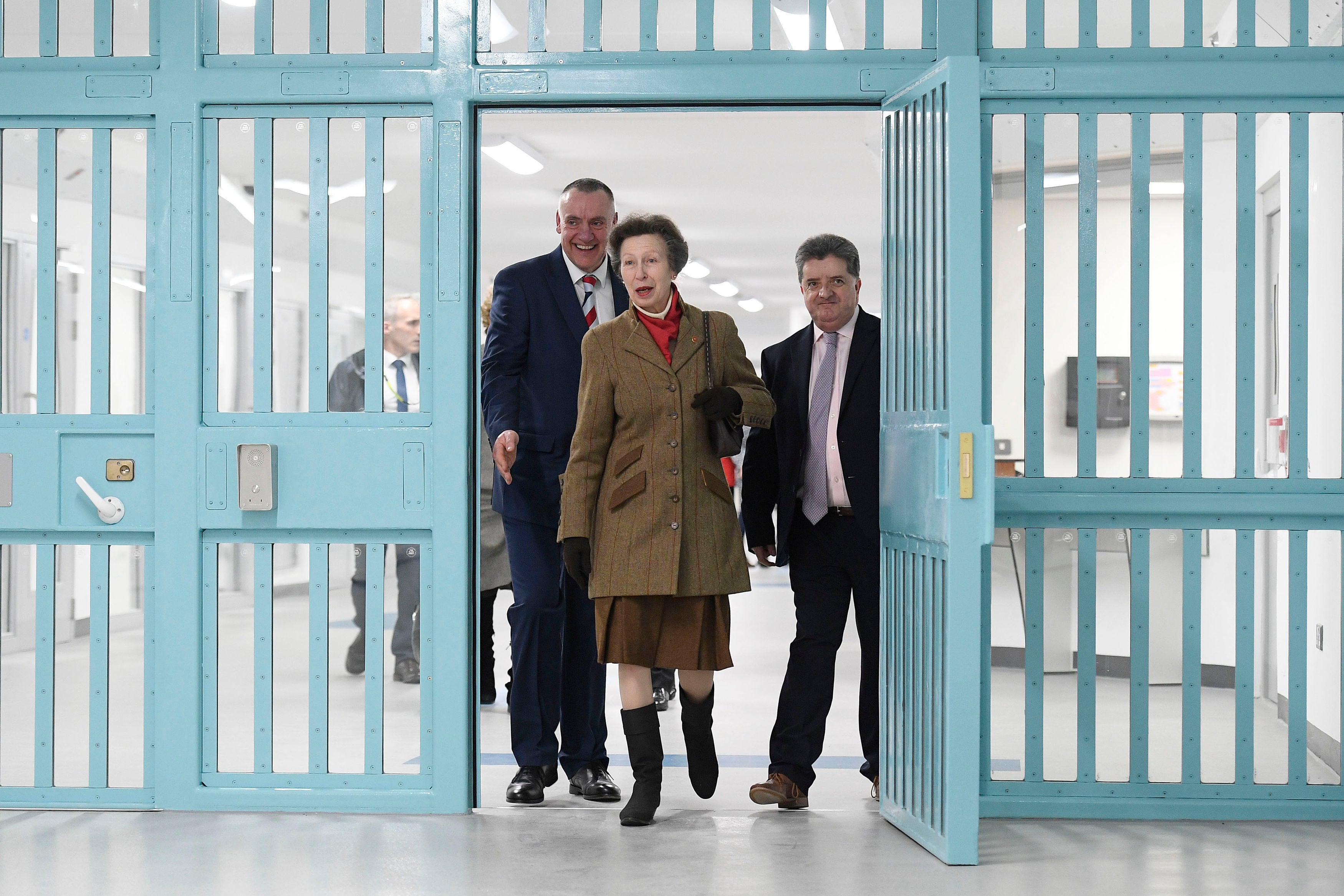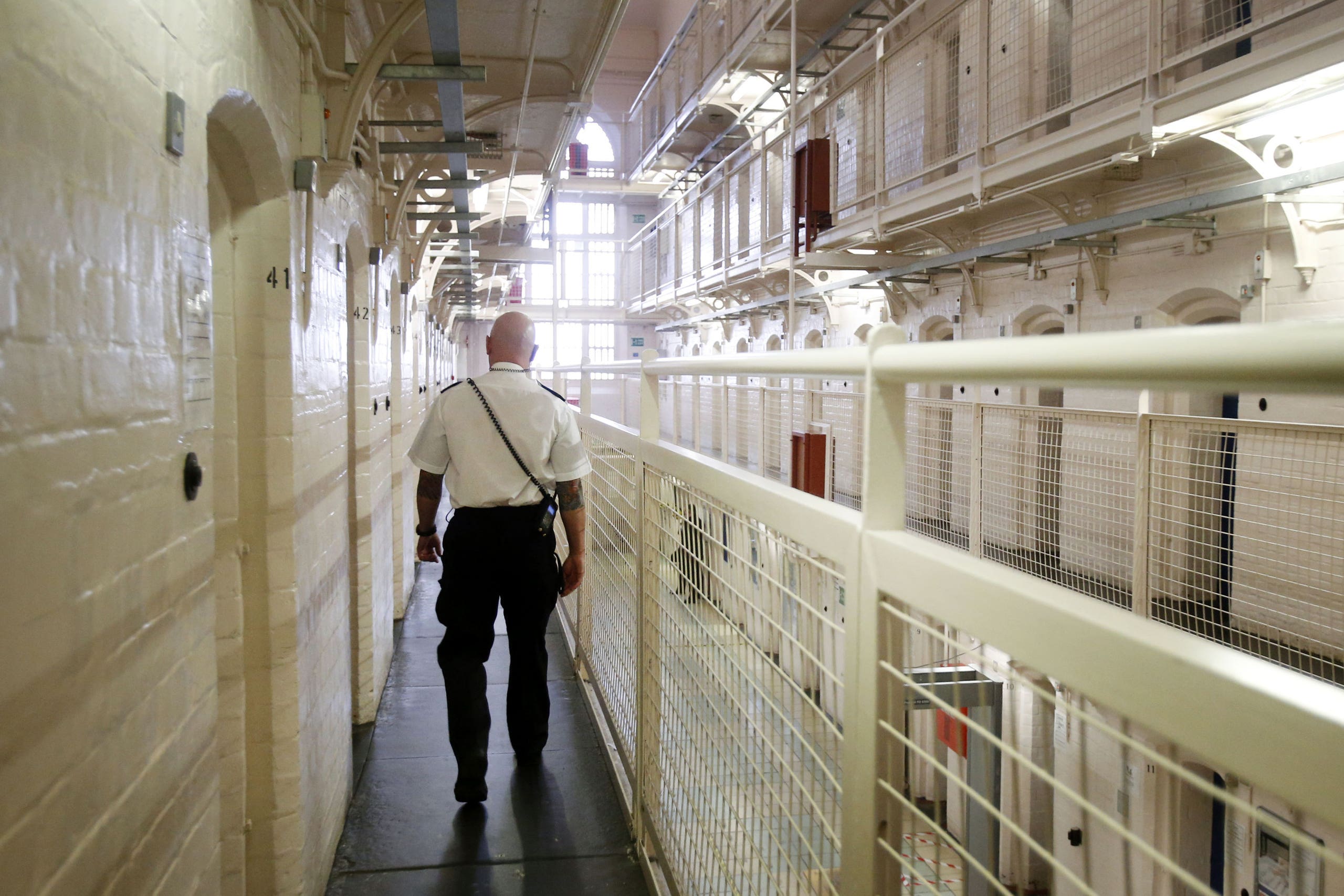If our prisons are at breaking point, why are prisoners given a 12 month sentence still there 19 years later?
Imprisonment for public protection sentences were introduced by New Labour in 2005. But, as Peter Stanford, director of the Longford Trust, explains, murderers are now being let out before minor offenders, and a sentence with no maximum time served is having a horrific human cost in an already crumbling system


When any royal visits a prison, the governor inevitably chooses only the most trusted residents to take part in any meet-and-greet. So, when Princess Anne came to HMP Erlestoke in Wiltshire in 2009, it was Andrew Morris who was hand-picked from on high to be the one inmate to have a chat and show her round his cell.
At that stage, Morris had already served more time behind bars than the 20-month minimum tariff imposed by a judge after he pleaded guilty to false imprisonment and threats to kill. He hadn’t been released, though, because his was an IPP sentence – imprisonment for public protection – introduced by the New Labour government in 2005.
IPP sentences were designed for offenders whose crimes did not fit within the list covered by life sentences (for example, murder), but who were still judged to pose an ongoing risk of serious harm to the public. IPP prisoners had a minimum tariff, but no maximum. It was left to the Parole Board at an unspecified date to decide when it was “safe” to release them.
Ministers defending the scheme at the time said that IPP would be used in cases of serious violence or sexual offences to stop anyone assessed as still dangerous from being allowed back on the streets once they had served their minimum sentence. In reality, 153 crimes were listed as potentially carrying an IPP sentence if the judge saw fit, including affray and criminal damage.
Some of the resulting human horror stories have been highlighted in this paper’s recent reporting. James Lawrence, handed an eight-month minimum tariff in 2006 by a judge as part of an IPP sentence for threatening someone with an imitation pistol, is still inside more than 18 years later. “In his time, he’s seen murderers come in and murderers go home,” his mother Mandy told The Independent last month. “It’s tormenting for his family, let alone him.”
Lawrence’s story is just one of a number of cases reported in these pages that highlight injustices as a result of IPP. They include that of Thomas White, who in 2012, as a 27-year-old, was given a two-year minimum term under IPP for stealing a phone. Also that of Nicholas Bidar, who was 20 when he was given an IPP minimum tariff of eight years in 2008 for robbery using a gun and resisting arrest. He remains inside and has been described by his family as a “political prisoner”.
Vivid in my memory is a visit to HMP Brixton in 2022, as part of an educational programme run by the Longford Trust. On my way out, a concerned prison officer asked me to look in on a cell where an elderly man was whiling away his days after 18 years on an IPP sentence and many knock-backs from the Parole Board. He didn’t want to give me his name, but told me he wished he was dead. At least 90 prisoner suicides have occurred among those on IPP sentences.
However, many people don’t even realise they exist – even the prisoners who are given them, like Morris, now aged 47. “I didn’t even understand what an IPP sentence was at the time,” he remembers. “My barrister had told me to expect to get four years and be out in two. That is what others I met in prison who had committed similar crimes had got.”
Instead, he got an IPP, for reasons that were never disclosed to him. Indeed, the random overuse by judges, with no explanation, of IPP sentences began to concern even the ministers who had introduced them, and was one of the reasons cited for their abolition in 2012.

In Morris’s case, the result of all this confusion meant that, while the experienced staff at HMP Erlestoke were so convinced of his rehabilitation that they judged him to pose no serious risk to the Queen’s daughter on her visit, he still had to wait for a Parole Board decision. That took another 10 and a half years.
Even when released in 2019, he remained under IPP conditions. This meant that he could still be recalled to prison, not just if he committed another offence, but if, for example, a neighbour made a complaint about him to the police. Recalls for missing a doctor’s appointment are not unknown for IPP prisoners.
Morris has been tiptoeing gingerly through this minefield for the past four years. Nevertheless, now 18 years sober, in a stable relationship, and working alongside studying part-time for a law degree, he remains sanguine about his position today.
“I had an uncle who told me, when I came out, don’t be bitter, be better,” he reflects, “and that is what I’ve tried to do. If I didn’t, I worry I would end up back down the road of drug and alcohol abuse that landed me in prison in the first place. But that doesn’t mean that I am not pissed off every single day about what happened to me, what was taken away from me.”

Once they had been introduced in 2005, the reality of IPP sentences didn’t bear much relation to the government’s rhetoric about why they would be effective. The Parole Board would often insist that IPP prisoners referred to them for release first underwent designated courses to encourage rehabilitation. But in a prison service starved of funds, getting on your designated course meant, in Morris’s case, a three-and-a-half-year wait.
Recent figures show that a quarter of IPP prisoners are not currently resident in prisons where they can undertake the rehabilitation courses prescribed by the Parole Board. This is not a new problem. In 2012, a European Court of Human Rights judgment ruled that the acute shortage of rehabilitation facilities in UK prisons meant that the detention of IPP prisoners was “arbitrary” and an unlawful deprivation of their liberty. It was another factor in the decision by the new coalition Tory/Liberal Democrat government to outlaw IPP in the same year (a move that Labour opposed).
Their abolition did not apply retrospectively. Over their seven years in operation, 8,711 IPP sentences were handed out (including over 300 to people under the age of 18).
Indeed, the random overuse by judges, with no explanation, of IPP sentences began to concern even the ministers who had introduced them
Today, there are still 2,734 IPP prisoners with no release date, of whom 1,132 have never been let out (the others have been freed and then recalled because they are still on IPP licence). More than 700 of those IPP prisoners currently inside have served more than 10 years longer than their minimum tariff.
One of the factors that continues to be used to justify the failure to release more of the remaining IPP prisoners is the fear that their mental health is such that they may pose a threat to society. “When you have people given a one-year minimum tariff who serve 19 years in prison,” suggests Andrea Coomber KC, chief executive of the Howard League for Penal Reform, “their mental struggles are not about their index offence [the crime they were sentenced for] but the damage done to them while they are in prison. Many of them have been left so unwell that releasing them into the community is not an option unless it is to somewhere they will be safe and cared for.”

Such facilities are few and far between after all the years of austerity. A recent survey suggested that the number of people with IPP sentences living in the community (in other words, those who have managed to get themselves released from prison) who take their own lives is higher than the number who go on to commit more serious offences.
Most frustrating of all is that those with the power to change the situation do recognise quite how appalling it is – but they do little about it. In November 2016, just months after resigning as justice secretary, Michael Gove gave the annual Longford Lecture, with the title “What’s Really Criminal About Our Justice System”. The topic of IPP sentences came up, and he told the audience it was an injustice that needed sorting. A shame, then, that he hadn’t applied himself to the task while in charge of our justice system.
There has, to be fair, been some tinkering by politicians – notably Alex Chalk, the most recent Conservative justice secretary. These include changes to the IPP licence period, reducing it from 10 years to three years on the first day of next month – 1,800 IPP prisoners currently on licence in the community (and therefore liable to be recalled at the drop of a hat) will have their IPP licence terminated on a single day.

But what hope, then, that the new justice secretary, Shabana Mahmood, might deal with the injustice being done to those still in prison on IPP? In her constituency newsletter in February 2020, she tackled the issue head-on.
“For many months I have been investigating IPP prison sentences ... There seems to be very little being done to work with these prisoners to get them the mental health care that they require and to ensure that they have access to courses that will give them some hope of release.
“I’ll continue to monitor this issue and will be taking steps to challenge the government to provide some transparency on IPP sentences.”
Now she is the government minister responsible, though, we are left waiting to hear of her plans to make good such promises. Andrew Morris attended the recent Labour Party conference as part of his work with the United Group for Reform of IPP (UNGRIPP), which campaigns for action on IPP sentences. He heard nothing from ministers that gave him hope.
He has, though, recently got some good news. “I heard on 25 September in a phone call from my probation officer that my own IPP licence had been terminated from that moment forward. It made me feel that the shadow hanging over me has been partially lifted, but I am still waiting for the piece of paper that says it in writing. After all I have been through, I can’t help worrying that I might still be recalled until I have that piece of paper in front of me.”
Peter Stanford is a writer and the director of the Longford Trust

Bookmark popover
Removed from bookmarks